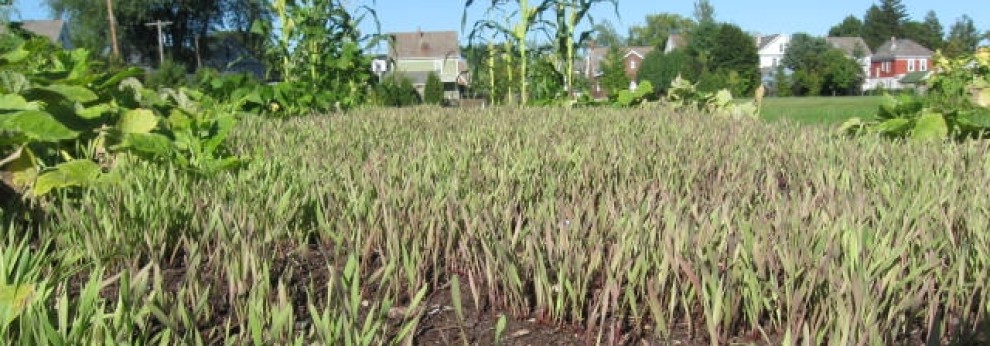 The space around our garden at Myers Middle School is quite a bit shaggier than it was when we started nearly 11 years ago, as accompanying then and now pictures show. Partly, that’s because the building was pretty new then and everything was mowed down for its construction.
The space around our garden at Myers Middle School is quite a bit shaggier than it was when we started nearly 11 years ago, as accompanying then and now pictures show. Partly, that’s because the building was pretty new then and everything was mowed down for its construction.  But also, mowing everything down seems like the default maintenance practice at Albany schools. And maybe we disrupted it, without really intending to. And that has really allowed plants to grow.
But also, mowing everything down seems like the default maintenance practice at Albany schools. And maybe we disrupted it, without really intending to. And that has really allowed plants to grow.
Now that we have noticed, it seems like a pretty good change – not as a matter of esthetics, but for the sake of teaching and learning, for the sake of creating reason and opportunity to explore the nearby outdoor world and for the sake of  harnessing the power of nature to support healthy lives and healthy adolescent development. Most students in New York take a class called “living environment.” And it’s typically taught without setting foot in a real living environment. Increasingly, however, the Myers schoolyard offers opportunities to
harnessing the power of nature to support healthy lives and healthy adolescent development. Most students in New York take a class called “living environment.” And it’s typically taught without setting foot in a real living environment. Increasingly, however, the Myers schoolyard offers opportunities to  actually explore ecosystems and food webs, observe and measure environmental succession, put hands on invasive species and measure their impact.
actually explore ecosystems and food webs, observe and measure environmental succession, put hands on invasive species and measure their impact.
Seems to us like a pretty good complement to Smart Board lessons.
So take a look toward the fence to the west of the garden area. A few lonesome and spindly ash trees, which offer yet more to explore due to the invasive emerald ash borer that’s threatening their existence, stood there when we broke ground. They have grown large since then, as phragmites have moved in to the north of them. And our footbridge looked like it was in the middle of a vast open expanse early on. It’s nearly hidden now by willow trees.
Our big challenge is drawing attention to these opportunities and encouraging teachers to avail themselves of them. We do not get the sense that these loom large in teacher training programs on in state Education Department curriculum wizards’ offices. Compelling research, however, suggests that contact with nature supports health, which would seem like a pretty important foundation for learning.
–Bill Stoneman




One response to “Disrupted mowing for the good of teaching”